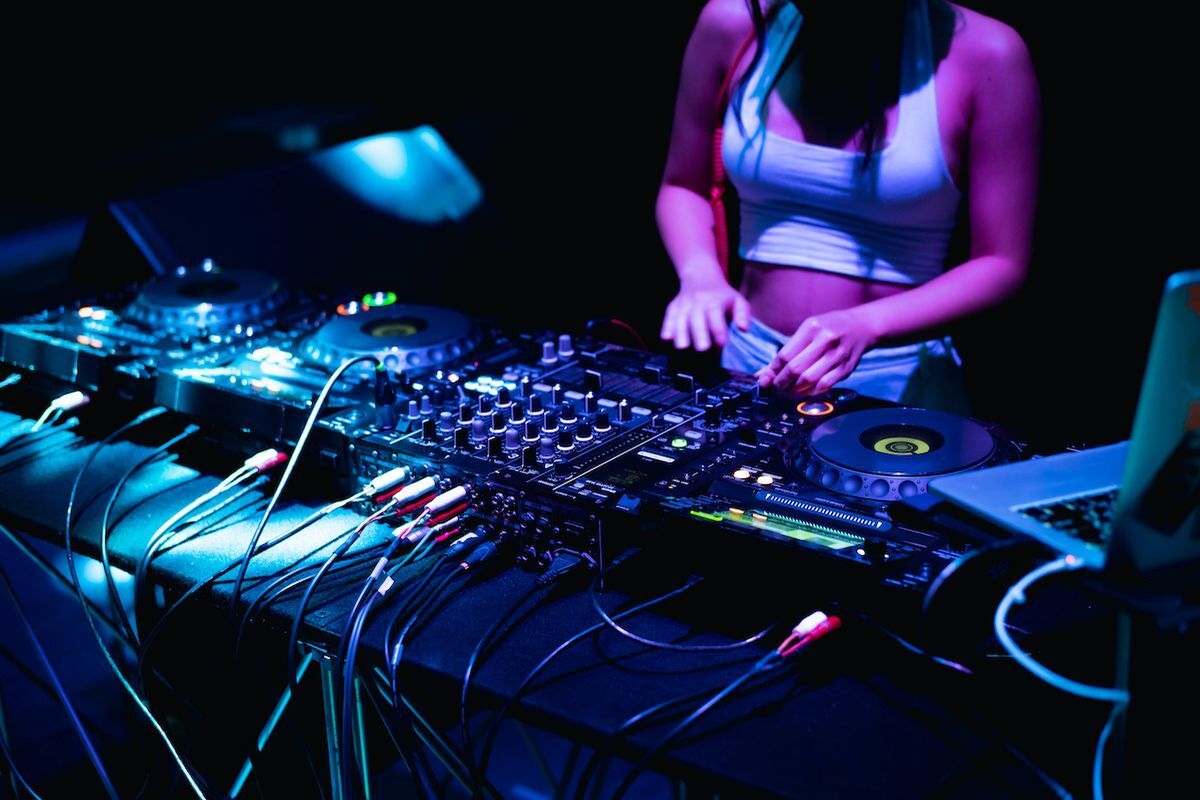
Electropop is a genre that fuses electronic music with pop melodies, creating catchy, danceable tunes. Emerging in the late 1970s and gaining massive popularity in the 1980s, this genre has evolved significantly over the decades. Artists like Kraftwerk, Depeche Mode, and Lady Gaga have all contributed to its rich history. But what exactly makes electropop so captivating? Is it the infectious beats, the futuristic sounds, or the blend of synthetic and organic elements? This blog post dives into 26 intriguing facts about electropop, shedding light on its origins, key players, and lasting impact on the music industry. Whether you're a longtime fan or new to the genre, these facts will give you a deeper appreciation for this electrifying style of music.
Key Takeaways:
- Electropop, a fusion of electronic music and pop, emerged in the late 1970s and has evolved into a versatile genre with global influence, shaping fashion, movies, and more.
- From its origins with pioneers like Kraftwerk to modern trends like sustainability, electropop continues to innovate and captivate audiences with its unique sound and futuristic appeal.
What is Electropop?
Electropop is a genre of music that blends electronic music with pop. It emerged in the late 1970s and has since evolved into a mainstream phenomenon. Here are some intriguing facts about electropop.
-
Origins: Electropop originated in the late 1970s and early 1980s, combining elements of electronic music and pop.
-
Pioneers: Bands like Kraftwerk and Yellow Magic Orchestra are considered pioneers of electropop.
-
Synthesizers: The genre heavily relies on synthesizers, which create its distinctive sound.
-
New Wave Influence: Electropop was influenced by the New Wave movement, which also emerged in the late 1970s.
-
Depeche Mode: Depeche Mode is one of the most successful electropop bands, known for hits like "Just Can't Get Enough."
Evolution of Electropop
Electropop has undergone significant changes since its inception. It has adapted to new technologies and trends, making it a versatile genre.
-
1980s Boom: The 1980s saw a boom in electropop with artists like Gary Numan and Soft Cell gaining popularity.
-
Digital Age: The advent of digital music production in the 1990s and 2000s further revolutionized electropop.
-
Auto-Tune: Auto-Tune became a staple in electropop, allowing artists to manipulate their vocals.
-
Global Influence: Electropop has influenced music globally, with artists from various countries adopting the style.
-
Subgenres: Subgenres like synthpop and electroclash have emerged from electropop.
Iconic Electropop Artists
Several artists have made significant contributions to the electropop genre, shaping its sound and popularity.
-
Madonna: Madonna incorporated electropop elements in her music, especially in the 1980s.
-
Lady Gaga: Lady Gaga's early work, including hits like "Just Dance," is heavily influenced by electropop.
-
Robyn: Swedish artist Robyn is known for her electropop hits like "Dancing On My Own."
-
La Roux: La Roux gained fame with their electropop hit "Bulletproof."
-
The Weeknd: The Weeknd's music often features electropop elements, blending them with R&B.
Electropop in Popular Culture
Electropop has made its mark not just in music but also in popular culture, influencing fashion, movies, and more.
-
Fashion: The genre's futuristic sound has influenced fashion trends, with artists often donning bold, avant-garde outfits.
-
Movies: Electropop tracks are frequently featured in movies, adding a modern, energetic vibe to soundtracks.
-
Video Games: Video games often use electropop music to create an immersive, high-energy experience.
-
Commercials: Brands use electropop in commercials to appeal to younger, tech-savvy audiences.
-
TV Shows: TV shows like "Stranger Things" have featured electropop tracks, contributing to the genre's resurgence.
Modern Electropop Trends
The genre continues to evolve, with new trends and innovations shaping its future.
-
Collaborations: Modern electropop artists often collaborate with DJs and producers to create unique sounds.
-
Streaming Platforms: Streaming platforms have made it easier for electropop artists to reach global audiences.
-
Social Media: Social media platforms like TikTok have played a significant role in popularizing electropop tracks.
-
Live Performances: Electropop artists are known for their visually stunning live performances, often featuring elaborate light shows and choreography.
-
Sustainability: Some electropop artists are incorporating themes of sustainability and environmentalism into their music.
-
Future Prospects: With ongoing technological advancements, the future of electropop looks promising, with endless possibilities for innovation.
The Final Beat
Electropop has truly transformed the music scene. From its synth-heavy beginnings in the '80s to today's chart-toppers, this genre keeps evolving. Artists like Kraftwerk and Depeche Mode paved the way, while modern stars like Lady Gaga and The Weeknd continue to push boundaries. The blend of electronic sounds with pop melodies creates a unique, infectious vibe that resonates with fans worldwide.
Whether you're a longtime fan or new to the genre, there's always something fresh and exciting to discover. Electropop's ability to adapt and innovate ensures it remains relevant and captivating. So, next time you hear those catchy beats and futuristic sounds, remember the rich history and creativity behind them. Dive into the world of electropop and let the music take you on a journey through time and sound.
Frequently Asked Questions
Was this page helpful?
Our commitment to delivering trustworthy and engaging content is at the heart of what we do. Each fact on our site is contributed by real users like you, bringing a wealth of diverse insights and information. To ensure the highest standards of accuracy and reliability, our dedicated editors meticulously review each submission. This process guarantees that the facts we share are not only fascinating but also credible. Trust in our commitment to quality and authenticity as you explore and learn with us.
